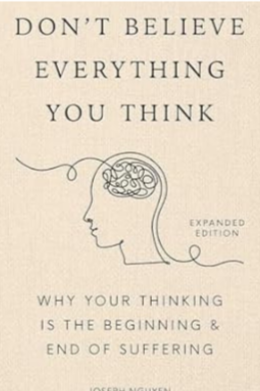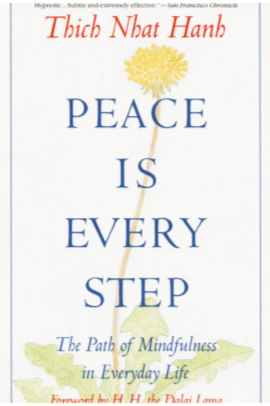
Therapy for Personal Growth
Awakening the Light Within
“The journey of a thousand miles begins with a single step.” — Lao Tzu

Sometimes, change is subtle and quietly takes up space in the realm of possibility and potential.
At other times the lightening bolt of loss, trauma, injury, or illness can strike without warning. Whether change knocks gently at the door or comes crashing through with no invitation, it can impact our lives in many ways:
Our emotions may be felt more intensely and we may be more reactive.
Long held beliefs may be challenged.
Relationships may become strained or end.
Thinking can change.
The world and people may feel increasingly unsafe.
We may find that we are no longer interested in the things that we used to enjoy.
These experiences are very human responses. Rather than treating these responses as simply “symptoms” of a disorder, my approach honors your lived experiences, mind, intuitive wisdom, heart, and nervous system. Together, we will create a space where emotions can be felt, stories can be heard, and growth can unfold naturally.
There are moments (big and small) over the course of our lives that shape or change us. Both positive and challenging life experiences can lead to personal change. When you look at your own life, which experiences would you consider pivotal? Here are a few examples of life events that can lead to personal change:
Positive Events
~ birth of a child | grandchild
~ falling in love
~ exposure to new culture | travel
~ reuniting with old friend or family member
~ empty nest
~ career change
~ relocation
Challenging Events
~ loss of a loved one
~ loss of relationship, family, friends or community
~ traumatic event(s)
~ losing a job
~ natural disasters | pandemics
~ illness or injury
Grief and Trauma as Catalysts for Change
Has the bulldozer of change leveled everything that you thought you knew?
Many bereaved people will say that “everything changed” the day that their loved one passed away. This is most common after a immensely painful loss (i.e. loss of a child, loss of a life partner, etc.)
And some trauma survivors feel similarly. The world can look vastly different. Your life may look exactly the same on the outside even as EVERYTHING feels different. In fact, others may not be aware of the changes occurring within.
Do grief and trauma change everyone? Yes. In big ways or small ways. In silent ways or loud ways. But the changes will be unique to you. Perhaps there is an increased awareness of the fragile and temporal nature of life. Or there may be a strengthening of familiar beliefs, traditions, and practices - the things you’ve leaned on to bring you comfort in the past.
Others may find themselves at a crossroad - reexamining all that is familiar.
Let’s use Jung’s concept of the human psyche and visualize our ego consciousness as resting on top of our personal unconscious, with just a thin veil separating them. Grief and trauma have a way of peeling back that veil. It is from this “peeling back” that we can find ourselves wrestling with existential questions.
The privilege of a lifetime is to become who you truly are.
There are many paths that lead to a more authentic life.
Are you experiencing a shift in how you perceive yourself and your place in the world?
The shift can be gradual or it may happen suddenly. Perhaps you have experienced a significant event (i.e. loss, trauma, near-death experience, illness, etc.) or transformative encounter (i.e. conversation, book, travel, meditation, etc.) that inspired a shift in awareness or perspective.
Answers may not come easily. And it can be a challenging time of self-reflection, introspection, questioning, and doubt. The call for change may coincide with a period of self-reflection and deconstruction. You might become increasingly aware of a desire to
~ live differently in the world,
~ interrupt generational patterns,
~ create new ways of being, interacting or connecting,
~ re-evaluate goals that no longer “fit”.
Self-discovery involves an unlearning of some of the things you’ve been taught and internalized which is why transformation may accompanied by:
~ deconstruction of larger systems, social constructs, and norms, or
` questioning that leads to increased rationalism, skepticism, agnosticism or atheism. If you come from an environment that subscribes to a high-control, fear-based religion, this change may be accompanied by many layers of loss (i.e. family, community, connection, security, safety, certainty, etc.).
For some, the call for personal transformation may be more spiritual in nature. Common experiences include:
~ questioning pretty much everything (identity, existence, purpose, beliefs, values, relationships, etc.),
~ thirst for more authenticity or meaning,
~ increased interest in the soul or afterlife (more likely after a significant loss),
~ noticing signs, symbols, or synchronicities,
~ feelings of interconnectedness, awe, or divine | unconditional love.
Shifts in spiritual beliefs can be quite challenging. It is sometimes referred to as the dark night of the soul (a term attributed to the 16th century poet, St John of the Cross) highlighting the difficult and painful experiences that can accompany a personal transformation | spiritual awakening. The process of deconstruction can feel existentially exhausting and lonely.
Growth is never a straight-forward or linear process.
Most likely, you will have stops, starts, missteps, periods of regression, intense emotional experiencing and new challenges.
“When she transformed into a butterfly, the caterpillars spoke not of her beauty, but of her weirdness. They wanted her to change back into what she always had been. But she had wings”
Sarah Paxton Ball Dodson and Dean Jackson
Post-Traumatic Growth. Is it a thing?
Post-traumatic growth is generally defined as “positive” changes that occur as a result of hardship. The ancient Greeks had a saying, “All great wisdom comes from suffering.” In an attempt to better understand how painful events can lead to personal growth, resilience researchers have attempted to answer the question: Can traumatic events lead to positive outcomes?
Researchers categorize post-traumatic growth along five domains. They are:
personal strength,
new possibilities,
improved relationships,
appreciation for life, and
spiritual growth.
The consensus, based on current research, suggests that traumatic events can be catalysts for post-traumatic growth, but not always. There are many reasons for this. Environment, personal coping, cultural influences, beliefs, the nature of the loss/trauma, and personality can shape our responses.
For many of us, the path through the pain is the most difficult journey of our lives. And there may times when we struggle to keep going. Labels, diagnoses. and the expectations of others can leave us feeling alienated and judged. If we are not seeing “positive growth” we can feel discouraged (like we’re doing it wrong).
But in reality, some experiences are very difficult to alchemize. They simply defy understanding. And while we may need to create meaning and learn from our experiences, answers can be hard to find. A heightened awareness of the uncertainty of life can lead to even more questions.
For those struggling to bear the unbearable, the expectation for positive growth can feel impossible and invalidating. It might be helpful to think about post-traumatic growth as something that sometimes exists parallel to the difficult reality you live every day.
What Post-Traumatic Growth is NOT:
the same as optimism
a sign that what happened was “good” or “worth it”
a universal experience
an indication of less emotional distress (in fact, the opposite is usually true).
As time goes on, you might notice little sprouts of growth emerging from places you never imagined. But, it doesn’t take away the pain or “make it ok”. Rather, it’s an awareness that you’ve changed in some ways. If you are interested in learning more about the five domains of post-traumatic growth, this personal inventory may be helpful.
Videos and Articles
Book Nook
Holistic Therapy for Personal Growth
If you are experiencing a change or transition, therapy may be helpful.
Change - even those that have positive long-term benefits - can come with a loss of family, friends, and community. You may miss your “old self” or “old life”. It is common to feel sad, anxious, abandoned, or estranged following a significant life change.
I am here to help you process your thoughts and feelings as you navigate your changing world. As you integrate the changes and move toward a more authentic version of yourself, we can dive fully into the mental, emotional, spiritual, relational, and somatic experiences that support your growth. New awareness and insight may emerge as we talk. You may also learn to trust your inner wisdom a little more. Or, you may discover renewed strength, acceptance, creative solutions, and resourcefulness.
There is a future version of you just waiting for you to connect with them.































